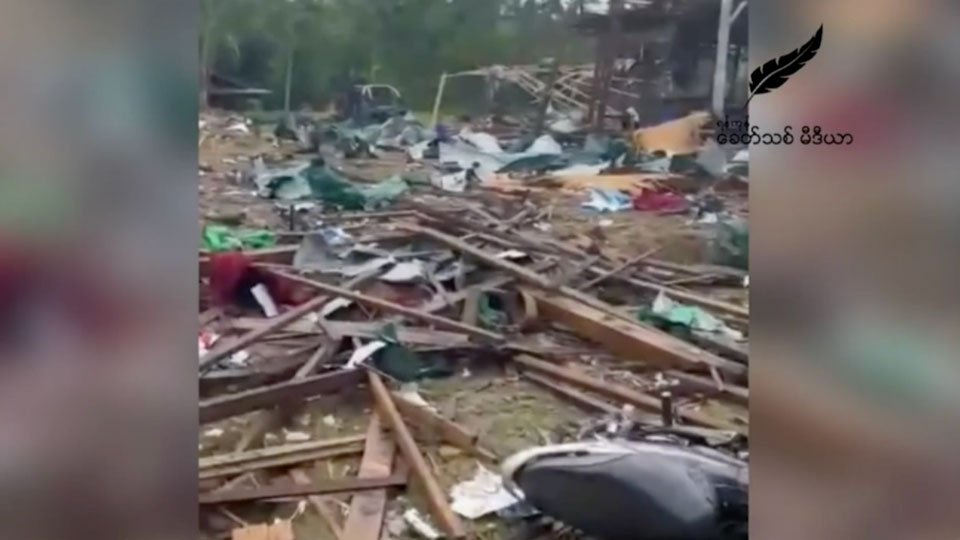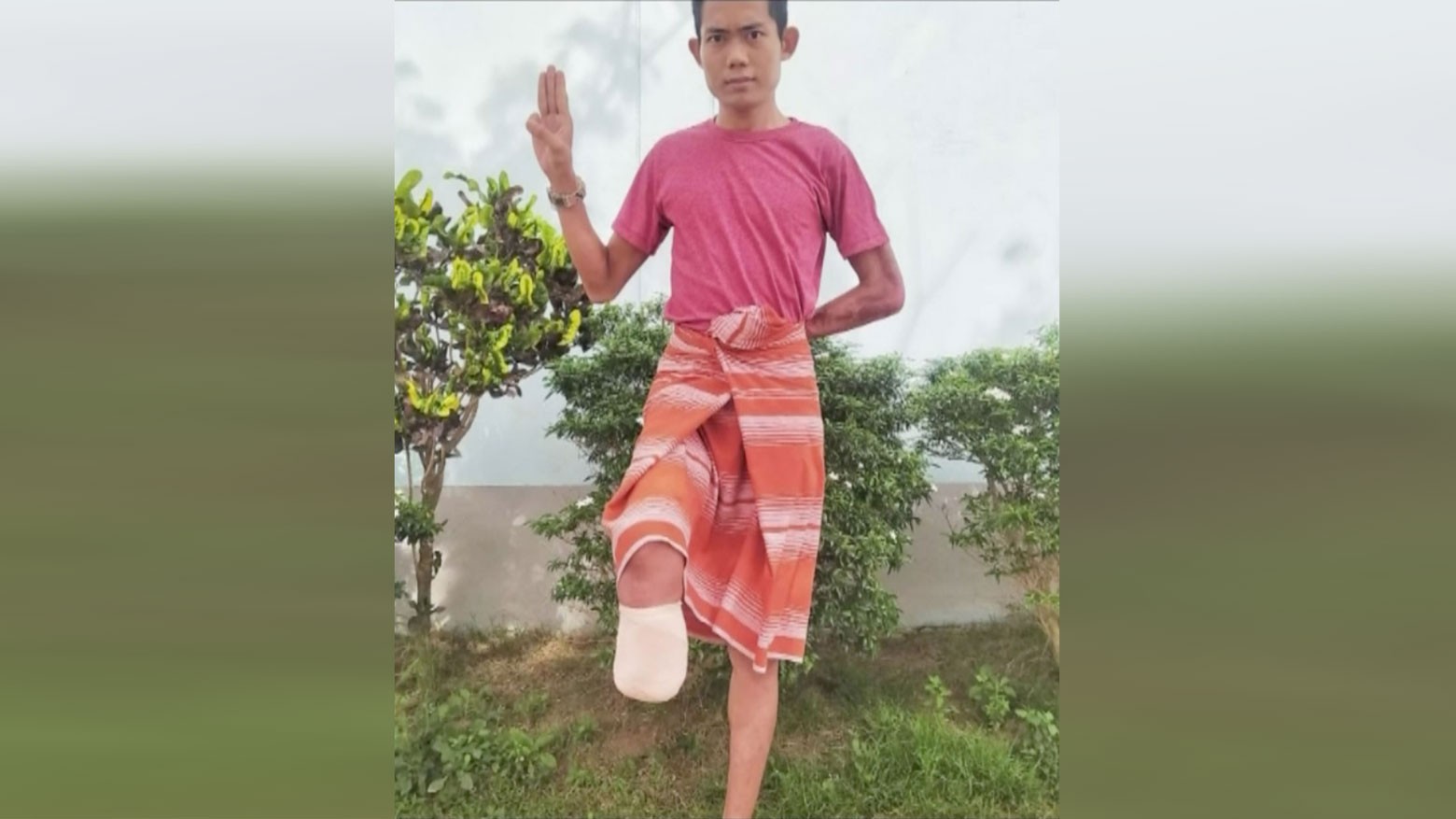Nightmare on the frontline
Twenty-nine-year-old "Ko Kyee" (not his real name) is a former fighter with the People's Defense Force, the armed wing of the National Unity Government formed after the military coup in 2021.
With his younger brother, he oversaw a unit that used drones to scout and bomb enemy positions.
In April, his brother and five other members were killed when dozens of their bombs unexpectedly exploded. Ko Kyee lost his right leg in the accident.
"My young brother called my name twice," he recalls. "I wanted to help him, but I didn't have a leg anymore. It had been ripped off."
The former fighter says he and his brother accepted the dangers in their work as an inevitable price of armed struggle. "We had to go to the frontline of the battlefield many times. We were already mentally prepared for the fact that one day we might be wounded."
Ko Kyee says his younger brother had named their unit after a type of skylark. "We were determined to fly to the end for freedom, justice and equality."
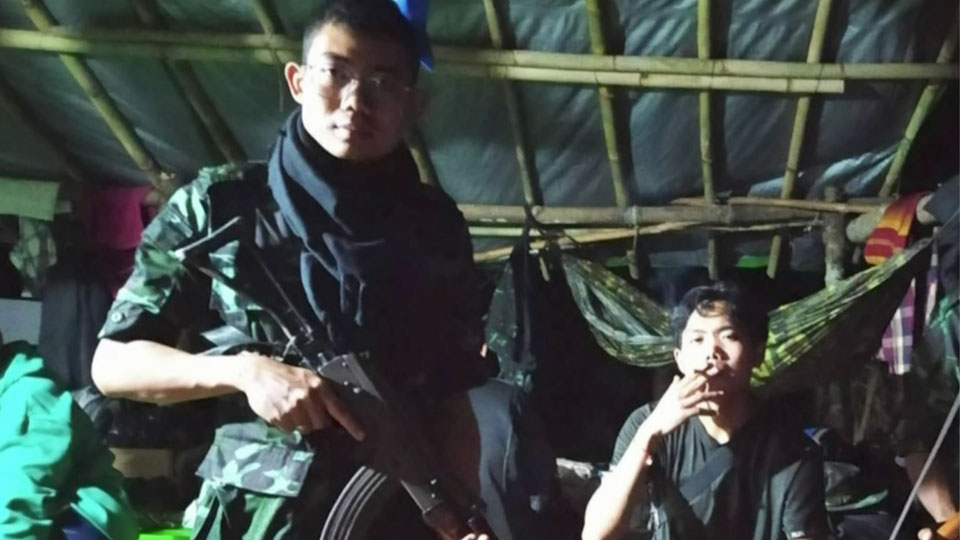
A different approach to revolution
Ko Kyee is now in neighboring Thailand getting treatment for his injuries, but he continues to fight for democracy from over the border.
He recently started a social media channel that features a former comrade who also lost a leg in the conflict. The pair make videos about coping with disability in a foreign country. They use the channel to raise money for supplies they send to people in camps and battlegrounds back in Myanmar.
"A revolution isn't just about taking up arms," says Ko Kyee. "Since losing my leg, I've suffered occasional bouts of depression. But then I remember -- I've already sacrificed a leg, so there's nothing else to fear. I just want to help people who can do the things I can no longer do."
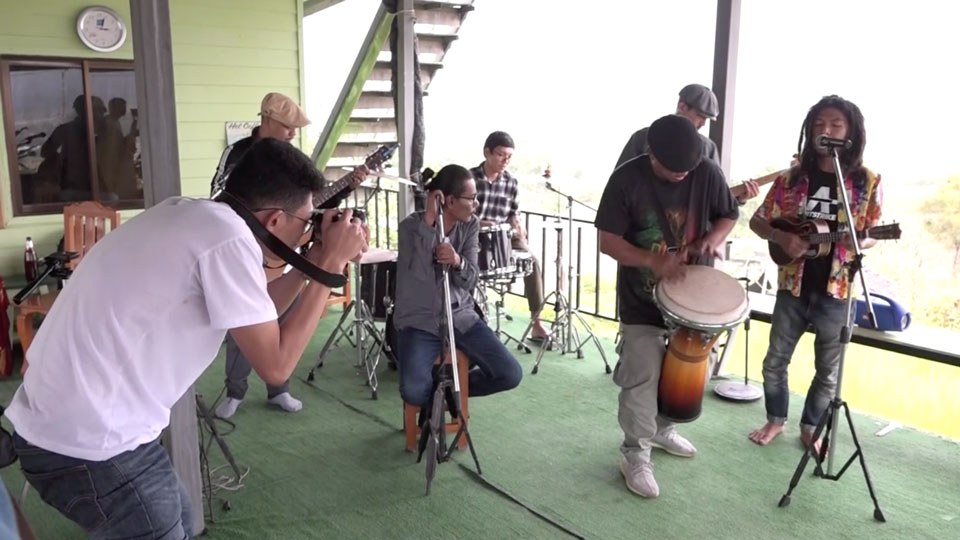
Medical crisis
Myo Khant Ko Ko, 36, supervises a team of medical workers who treat wounded resistance fighters in Kayah State, an area that has been ravaged by intense battles.
After the coup, his clinic became a target for the military, so staff were forced to move to a hidden location.
"We're the main hospital in this area," he says. "One time there was a battle not far away, and six or seven critical patients arrived at the same time."
The doctor says a critical shortage of medical supplies is making it hard to do his job. "Rising prices and the stronger dollar have made drugs nearly twice as expensive," he says. "We can't afford crucial medicine and medical supplies."
A lack of doctors is compounding the problem. Myo Khant Ko Ko has been forced to train medical students and first responders instead.
"I'm a general doctor," he says. "I look after everything from your head down to your toes. I'm not just here to treat the fighters. I have to help all the other people with health problems too. We need more doctors."
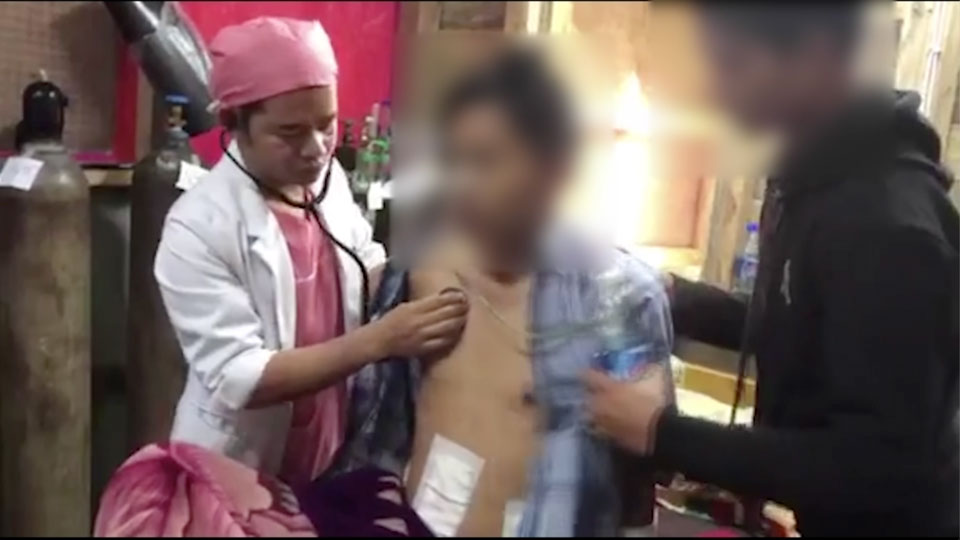
Bogged down in battle
The military has recently intensified its attacks on civilian targets in areas controlled by resistance forces in Kayah State, a human rights group says. In one incident, soldiers fired heavy artillery into a kindergarten that was sheltering people who had fled their homes. The bombardment killed a 5-year-old girl and several other people.
And in October, the military sparked international outrage with airstrikes in the northern state of Kachin that claimed dozens of civilian lives.
The entrenched resistance to these and other murderous attacks suggests the military has underestimated the widespread contempt for its leadership, and the determination of armed groups to fight back at all costs. For the civilians caught in the crossfire, however, those costs are rapidly mounting.
